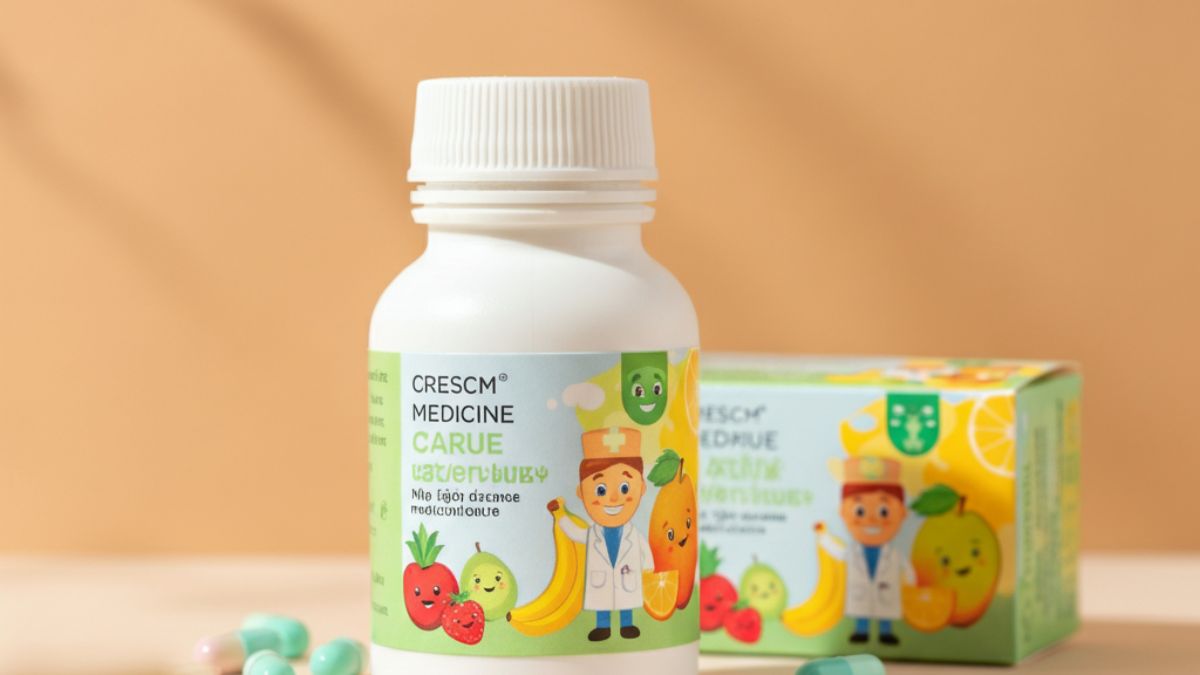Every sneeze, sniffle, and itch can be a sign that your child is struggling with allergies. If you’re a parent, you know just how challenging it can be to watch your little one deal with watery eyes, sneezing fits , or relentless itching. It’s no surprise that many parents turn to allergy medicine to bring relief. But with so many options on the market, how do you choose the best and safest one for your child?
This guide will break down everything you need to know about kids’ allergy medicines—how they work, how to choose the right one, and tips for using them safely.
What Are Allergies and Why Do They Happen?
Allergies occur when a child’s immune system overreacts to a harmless substance, like pollen, pet dander, or certain foods. These substances, called allergens, trigger the body to release chemicals like histamine, causing symptoms like:
- Sneezing
- Runny or stuffy nose
- Itchy, watery eyes
- Coughing or wheezing
- Hives or skin rashes
Seasonal allergies (also known as hay fever) are common in kids, but some children also suffer from year-round allergies caused by indoor allergens or certain foods.
Understanding what allergens are causing your child’s discomfort is the first step to finding the right treatment.
Types of Allergy Medicines for Kids
There are several types of allergy medicines specifically formulated for children. Each works differently to address allergy symptoms, so understanding how they function can help you choose the best option for your child.
1. Antihistamines
How They Work
Antihistamines block the histamine chemical that causes most allergy symptoms. These are often the first line of defense for allergies.
Common Brands
- Diphenhydramine (Benadryl)
- Loratadine (Claritin)
- Cetirizine (Zyrtec)
Pros
- Quick relief from symptoms like sneezing or itching.
- Available in both non-drowsy and drowsy formulas (helpful for bedtime relief).
Cons
- Older antihistamines like Benadryl can cause drowsiness, so they should be used carefully during the day. Non-drowsy options like Zyrtec might be better for daytime use.
Best For
Seasonal allergies, pet allergies, hives.
2. Decongestants
How They Work
Decongestants shrink the swelling in nasal passages, making it easier to breathe.
Common Brands
- Phenylephrine (in Sudafed PE)
- Pseudoephedrine (in Sudafed)
Pros
- Provides fast relief from nasal congestion caused by allergies.
Cons
- Not recommended for long-term use, as it can lead to rebound congestion or irritability in kids.
- Often combined with antihistamines in multi-symptom cold and allergy meds, so always check labels carefully.
Best For
Heavy nasal congestion or stuffy noses caused by seasonal allergens.
3. Nasal Sprays
How They Work
Nasal sprays work locally in the nasal passages to reduce inflammation and symptoms of nasal allergies.
Common Brands
- Fluticasone (Flonase Children’s)
- Budesonide (Rhinocort Allergy)
- Saline sprays (non-medicated options)
Pros
- Provides long-lasting relief, especially for chronic nasal symptoms.
- Steroid nasal sprays are safe for children when used as directed.
Cons
- Some kids may not like the sensation of using sprays.
- Takes a few days for full effectiveness.
Best For
Chronic allergies or year-round nasal allergy symptoms.
4. Eye Drops
How They Work
Eye drops target allergy symptoms like redness, itching, and tearing directly at the source.
Common Brands
- Ketotifen (Zaditor, Alaway)
Pros
- Provides immediate relief for itchy, watery eyes.
Cons
- Younger children may resist eye drop application.
Best For
Allergy-related eye irritation.
5. Combination Medications
Many brands combine ingredients like antihistamines and decongestants in one product. Always double-check the label to avoid giving your child duplicate doses of any active ingredient.
When Should You Use Kids’ Allergy Medicine?
Allergy medicines can be helpful, but they’re not a one-size-fits-all solution. Here’s when they might be necessary:
- For Seasonal Allergies
When pollen counts are high, daily antihistamines may help minimize symptoms.
- Before Exposure to Allergens
Giving medicine before exposure (e.g., before going to a park with lots of grass or pets) can help minimize a reaction.
- For Chronic Symptoms
Daily use of a nasal spray can keep year-round allergies under control. Consult your pediatrician for guidance.
- If Symptoms Are Severe
Severe symptoms, like difficulty breathing, should always be addressed by a doctor immediately. Medicine can help manage mild-to-moderate symptoms until you can see a healthcare provider.
Tips for Using Kids’ Allergy Medicine Safely
- Check the Label
Always read the instructions on the medication. Dosage recommendations vary based on your child’s age and weight.
- Watch Out for Side Effects
Common side effects of Allergy Medicine drowsiness, irritability, or dry mouth. If your child has unusual symptoms, contact your doctor.
- Avoid Over-Medicating
Try to stick with medications targeted for the symptoms your child has. For example, skip combo meds if your child only has sneezing.
- Store Safely
Keep all medications stored out of reach of children.
- Consult Your Pediatrician
If you’re unsure which Allergy medicine is right for your child or how long they should take it, consult a healthcare professional.
Are There Natural Allergy Remedies for Kids?
If you’d prefer to avoid medications, there are a few natural methods to provide relief:
- Keep Allergens Out
Use allergen-proof covers on bedding, and keep windows closed during high pollen seasons.
- Rinse Nasal Passages
A saline nasal spray can gently rinse allergens from your child’s nasal passages.
- Try Local Honey
Some parents swear by giving kids a bit of local honey to help soothe allergy symptoms. (Note: Only for kids over 1 year.)
- Boost Immunity
Probiotics and a balanced diet may strengthen your child’s immune system over time, although this is more of a long-term strategy than immediate relief.
When to See a Doctor
While over-the-counter medications can be effective for mild allergies, some cases require medical intervention. Consider consulting a doctor if:
- Symptoms persist or worsen despite using medication.
- Your child is experiencing chronic allergies affecting their sleep or daily activities.
- You suspect food allergies or asthma may be involved.
Allergy testing can help identify specific triggers and guide targeted treatment options.
Make Allergy Season Manageable
Allergies don’t have to disrupt your child’s life—or yours. By understanding the different types of medications and how they work, you can help your little one breathe easier and enjoy every season. Always consult your pediatrician if you’re unsure which option is right for your child.
Looking for healthier household habits? Keep allergens at bay by regularly cleaning your home, washing your child’s clothes, and monitoring pollen trends in your area.
FAQs
Q: What is the best medication for my child’s allergies?
A: The best medication depends on your child’s specific symptoms and needs. Antihistamines are effective for sneezing and itching, while nasal sprays can relieve congestion. Consult your pediatrician for personalized recommendations.
Q: Can allergies go away on their own?
A: Some children may outgrow certain allergies, such as food or seasonal allergies, while others may not. It’s important to monitor symptoms and seek medical advice if needed.
Q: How can I reduce indoor allergens?
A: Regularly cleaning your home, using HEPA filters, washing bedding in hot water, and keeping pets out of your child’s bedroom can help minimize allergens indoors.
Q: Should I consider allergy shots for my child?
A: Allergy shots, or immunotherapy, may be an option for children with severe or persistent allergies. They can help reduce sensitivity to allergens over time. Speak to your doctor about whether this treatment is suitable.
Q: Are allergy medications safe for long-term use?
A: Most over-the-counter and prescribed allergy medications are safe for long-term use under a doctor’s guidance. Always follow the dosage instructions and consult with your pediatrician for ongoing care.










